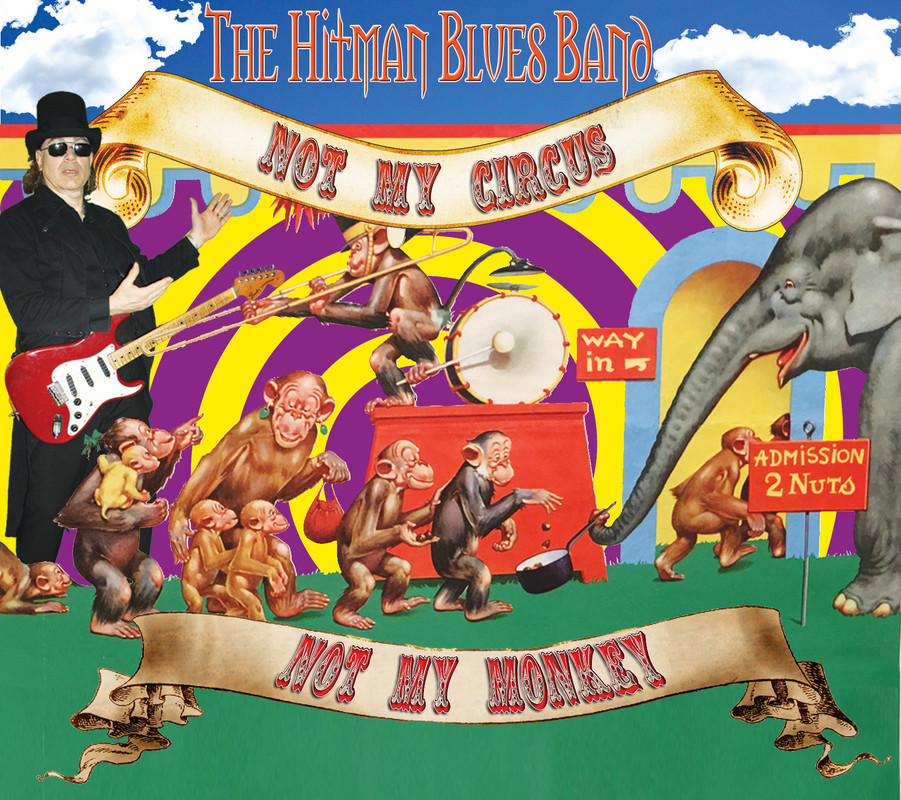
Hitman Blues Band is een band die gespecialiseerd is in moderne blues, tot grote vreugde van het publiek in zowel de VS als Europa. De nummers van de band zijn meer dan een half miljoen keer gestreamd op Spotify, en met het nieuwe album Not My Circus, Not my Monkey vertoont het geen tekenen van vertraging. Frontman Russell Alexander (RA) besprak telefonisch wat hem naar de blues, het nieuwe album en jeuk om weer op tournee te gaan, trok.
Gary Schwind{GS}: Wat trok je ertoe om de blues te spelen?
Russel Alexander{RA}: Ik ben mijn hele leven muzikant geweest. Mijn vader was een jazzmuzikant. Hij speelde met veel van de groten. Ik begon professioneel te spelen toen ik een jaar of 16 was. Uiteindelijk realiseerde ik me dat de muziek die me het langst aansprak de blues was. Zoals de meeste mensen, heb ik veel covers gespeeld en mezelf echt ondergedompeld in de verschillende stijlen van de blues. Ik heb altijd originele deuntjes geschreven, en ik begon in die stijl te schrijven. Het kwam eruit zoals het eruit komt.
GS: Zijn er bepaalde artiesten waar je voor het eerst naar werd aangetrokken?
RA: Vreemd genoeg, Elvis. De vroege Sun-sessies. Toen ik hoorde wat hij deed, luisterde ik naar bluesartiesten als Muddy Waters, Big Bill Broonzy, terug naar jongens als Charley Patton, Lonnie Johnson en die jongens, en dan helemaal terug naar Blind Willie Johnson. Dit zijn jongens met verschillende fingerpicking-stijlen. Op een gegeven moment werd ik aangenomen om alle Cream Clapton-solo's te leren. Horen waar hij vandaan kwam en hoe hij de stijlen uitbreidde. Het was een behoorlijk grote eye-opener voor mij. Dat had ook invloed op de manier waarop ik ernaar keek. Dit komt ook van een rock- en jazzachtergrond met alle jazznummers sinds mijn vader jazzmuzikant was.
GS: Over jazz gesproken, heb je gehoord over Chick Corea?
RA: Ik heb erover gehoord. Het is zo vreselijk en zo plotseling. Ze zeiden dat het een zeldzame vorm van kanker was die pas onlangs werd ontdekt. Geen waarschuwing. Vorig jaar was behoorlijk zwaar. Ik hoop dat dit jaar geen herhaling zal zijn. We zullen met dit soort dingen te maken krijgen naarmate mensen ouder worden. Het punt is dat ik niet veel gitaarhelden zie komen om die plek te vullen. Doe je?
GS: Nee. Lange tijd in de blues waren er Jonny Lang en Kenny Wayne Shepherd. Ik weet niet wie er achter hen aan komt.
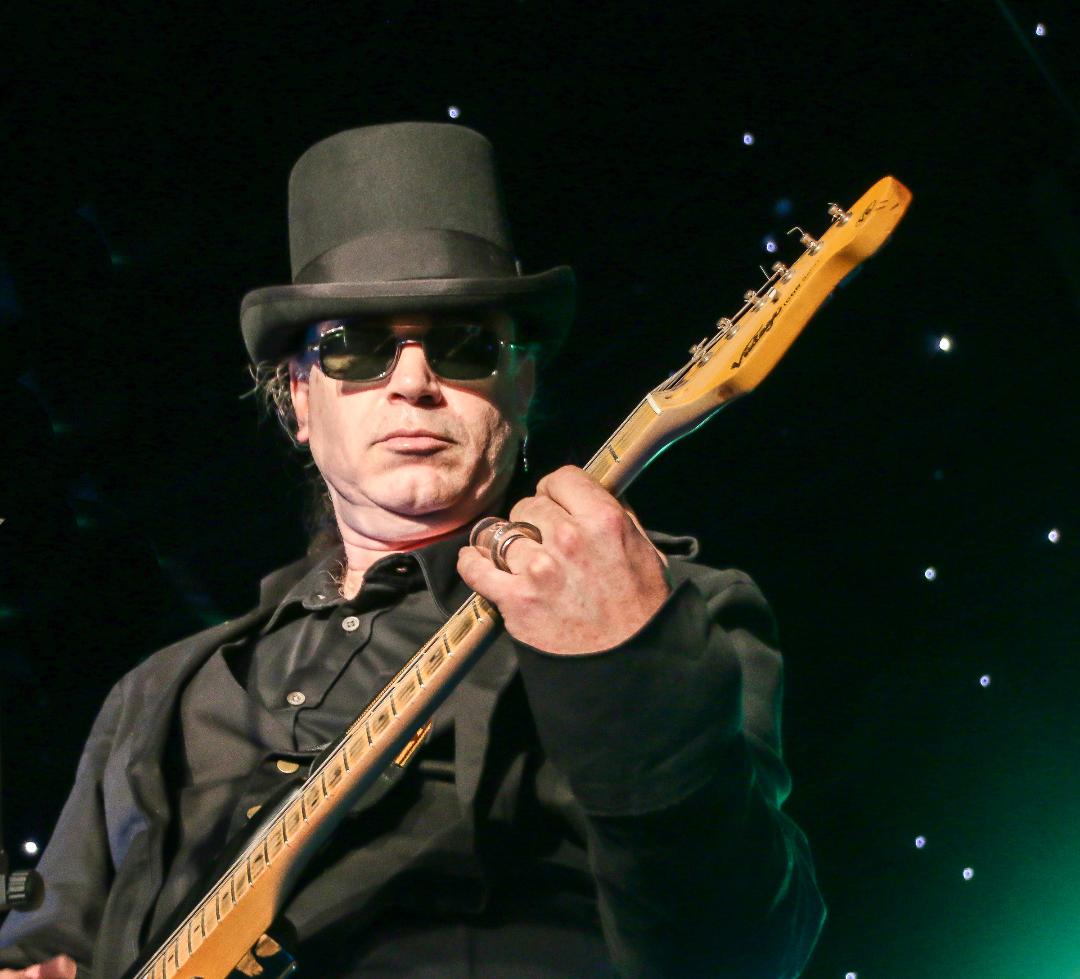 RA: Ze bereikten nooit echt de publieke acceptatie van Jimmy Page of Jimi Hendrix of Stevie Ray Vaughan. De meeste mensen, u zegt Jonny Lang en Kenny Wayne Shepherd, zullen zeggen: "Wie?" Het zijn geen kinderen meer. Het is bemoedigend dat livemuziek wordt gepusht door veel artiesten die enkele jaren geleden meer bezig waren met gesequencede nummers. Ik zie dat er meer livemuziek wordt gepromoot. Misschien zijn het gewoon de cirkels waar ik in ren.
RA: Ze bereikten nooit echt de publieke acceptatie van Jimmy Page of Jimi Hendrix of Stevie Ray Vaughan. De meeste mensen, u zegt Jonny Lang en Kenny Wayne Shepherd, zullen zeggen: "Wie?" Het zijn geen kinderen meer. Het is bemoedigend dat livemuziek wordt gepusht door veel artiesten die enkele jaren geleden meer bezig waren met gesequencede nummers. Ik zie dat er meer livemuziek wordt gepromoot. Misschien zijn het gewoon de cirkels waar ik in ren.
GS: Er komt volgende maand een nieuw album uit. Wat is het verschil met eerdere albums die u heeft opgenomen?
RA: We spelen wat we moderne blues noemen. Het is een combinatie van blues, jazz en rock, maar het is allemaal op blues gebaseerd. Ik heb aan een paar mensen kopieën gegeven. Wat ik heb gekregen, is dat het zojuist naar een heel nieuw niveau is gebracht. Het is nog steeds blues, maar het is een heel ander niveau dan wat we eerder hebben gedaan. Eerlijk gezegd weet ik niet precies waar ze het over hebben, maar oké. Bijna alles wat ik schrijf, is gebaseerd op mijn eigen leven. Als ze het leuk vinden, is dat goed. Heb je het album gehoord?
GS: Ja.
RA: Viel je iets op?
GS: het eerste nummer. En de versie van "John the Revelator".
RA: "John the Revelator" is zo vaak gedaan. Ze houden zich altijd aan dezelfde teksten en hetzelfde algemene lied. Ik zat te denken wat als John daar in zijn grot zat en het boek Openbaringen schreef en alle andere goden er gewoon binnenkwamen en hun eigen versie gaven van hoe het einde der tijden zal zijn? Dus ik schreef de teksten zo. Ik had Boeddha langs laten komen, en Odin en Brahma. Ik hou van de manier waarop het eruit kwam.
GS: Je hebt het redelijk goed gedaan in Europa. Wat is het verschil tussen optreden in Europa en optreden in de VS?
RA: Over het algemeen heb ik gemerkt dat mensen die ons komen bezoeken minder genrespecifiek zijn. Ze zijn het soort mensen dat de ene avond naar een bluesband gaat, de andere avond naar een heavy metalband. Ze houden gewoon van goede muziek en muziek die goed wordt uitgevoerd. Hier is het: "Je bent geen echte heavy metal-man, je poseert!" Je zult altijd mensen hebben die experts zijn in een bepaald genre. Ze zijn als "Je bent niet echt blues. Je bent niet echt rock. " Een opmerking die we vaak krijgen is: "Ik hou niet echt van de blues, maar ik hou van wat jullie doen." Wat we doen is de blues. Ik ben blij dat je het leuk vind.
GS: We worden hier een beetje bijzonder.
RA: De manier waarop ik ernaar kijk is, zolang ze er maar naar luisteren. Als ze het gaan horen, kunnen ze beslissen of ze het leuk vinden of niet. Als ze willen zeggen: "Ik vind het leuk, maar het is niet ..." dat is oké. Zolang je het maar leuk vindt. Ik herinner me altijd dat Dylan naar buiten kwam en zijn elektrische set deed op het Newport Folk Festival, en dat hij van het podium werd uitgejouwd. Heeft het hem tegengehouden? Nee. Als sommige mensen het niet leuk vinden, vinden ze het niet leuk. Wat ga je doen?
Translate: ENG
Hitman Blues band is a band that specializes in modern blues much to the delight of audiences in both the U.S. and Europe. The band’s songs have been streamed more than half a million times on Spotify, and with the new album Not My Circus, Not my Monkey, it shows no signs of slowing down. By phone, frontman Russell Alexander discussed what drew him to the blues, the new album, and itching to return to touring.
Gary Schwind: What drew you to playing the blues?
Russel Alexander: I’ve been a musician my whole life. My dad was a jazz musician. He played with a lot of the greats. I started playing professionally when I was about 16. Eventually I realized that the music that appealed to me the most long-term was the blues. Like most people do, I played a lot of covers, really immersing myself in the various styles of the blues. I’ve always been writing original tunes, and I started writing in that style. It came out the way that it comes out.
GS: Are there any particular artists you were first drawn to?
RA: Oddly enough, Elvis. The early Sun sessions. Hearing what he was doing set me up for listening to blues artists like Muddy Waters, Big Bill Broonzy, going back to guys like Charley Patton, Lonnie Johnson and those guys, and then all the way back to Blind Willie Johnson. These are guys with various fingerpicking styles. At one point, I was hired to learn all the Cream Clapton solos. Hearing what he had come from and how he expanded the styles. It was a pretty big eye-opener for me. That also influenced the way I was looking at it. This is also coming from a rock and jazz background with all the jazz songs since my dad was a jazz musician.
GS: Speaking of jazz, did you hear about Chick Corea?
RA: I heard about it. It’s so awful, and so sudden. They said it was a rare form of cancer that was just recently discovered. No warning. Last year was pretty rough. I’m hoping this year won’t be a repeat. We’re going to be dealing with things like this as people get older. The thing is, I don’t see a lot of guitar heroes coming to fill that spot. Do you?
GS: No. For a long time in the blues, there’s been Jonny Lang and Kenny Wayne Shepherd. I don’t know who might be coming after them.
RA: They never really reached the public acceptance of Jimmy Page or Jimi Hendrix or Stevie Ray Vaughan. Most people, you say Jonny Lang and Kenny Wayne Shepherd, they’ll be like, “Who?” They’re not kids anymore. It’s encouraging that live music is getting pushed by a a lot of artists who some years ago were more concerned with sequenced tracks. I see more live music being promoted. Maybe it’s just the circles I run in.
GS: You have a new album coming out next month. How is it different than previous albums you’ve recorded?
RA: We play what we call modern blues. It’s a combination of blues, jazz, and rock, but it’s all blues-based. I gave copies to a few people. What I’ve gotten is that it’s just been brought to a whole new level. It’s still blues, but it’s a whole different level than what we’ve done before. Honestly, I’m not really sure what they’re talking about, but OK. Almost everything that I write is based on my own life. If they like it, that’s good. Have you heard the album?
GS: Yes.
RA: Did anything stand out to you?
GS: The first track. And the version of “John the Revelator”.
RA: “John the Revelator” has been done so many times. They always stick to the same lyrics and the same general song. I was thinking what if John was sitting there in his cave writing the Book of Revelations and all the other gods just popped in and gave their own version of what the end of times is going to be like? So I wrote the lyrics like that. I had Buddha come by, and Odin, and Brahma. I like the way it came out.
GS: You have done pretty well in Europe. What’s the difference between performing in Europe and performing in the U.S.?
RA: Generally I’ve found that people that come to see us are less genre-specific. They’re the kind of people who will go out and see a blues band one night, a heavy metal band another night. They just like good music and music that’s performed well. Here, it’s “You’re not a real heavy metal guy, you poseur!” You’re always going to have people that are experts in a particular genre. They’re like “You’re not really blues. You’re not really rock.” One comment that we get a lot is “I don’t really like the blues, but I like what you guys do.” What we’re doing is the blues. I’m glad you like it.
GS: We do get a little particular here.
RA: The way I look at it is, as long as they listen to it. If they’re going to hear it, then they can decide if they like it or not. If they want to say, “I like it, but it’s not…” that’s OK. As long as you like it. I always remember that Dylan came out and did his electric set at the Newport Folk Festival, and he was booed off the stage. Did it stop him? No. If some people don’t like it, then they don’t like it. What are you gonna do?
More Information: Website: Hitmnan Blues Band New Album: Release 15.03.2021

Frank
Roszak
KBA Recipient 2014 PUBLICIST
www.frankroszakpromotions.com


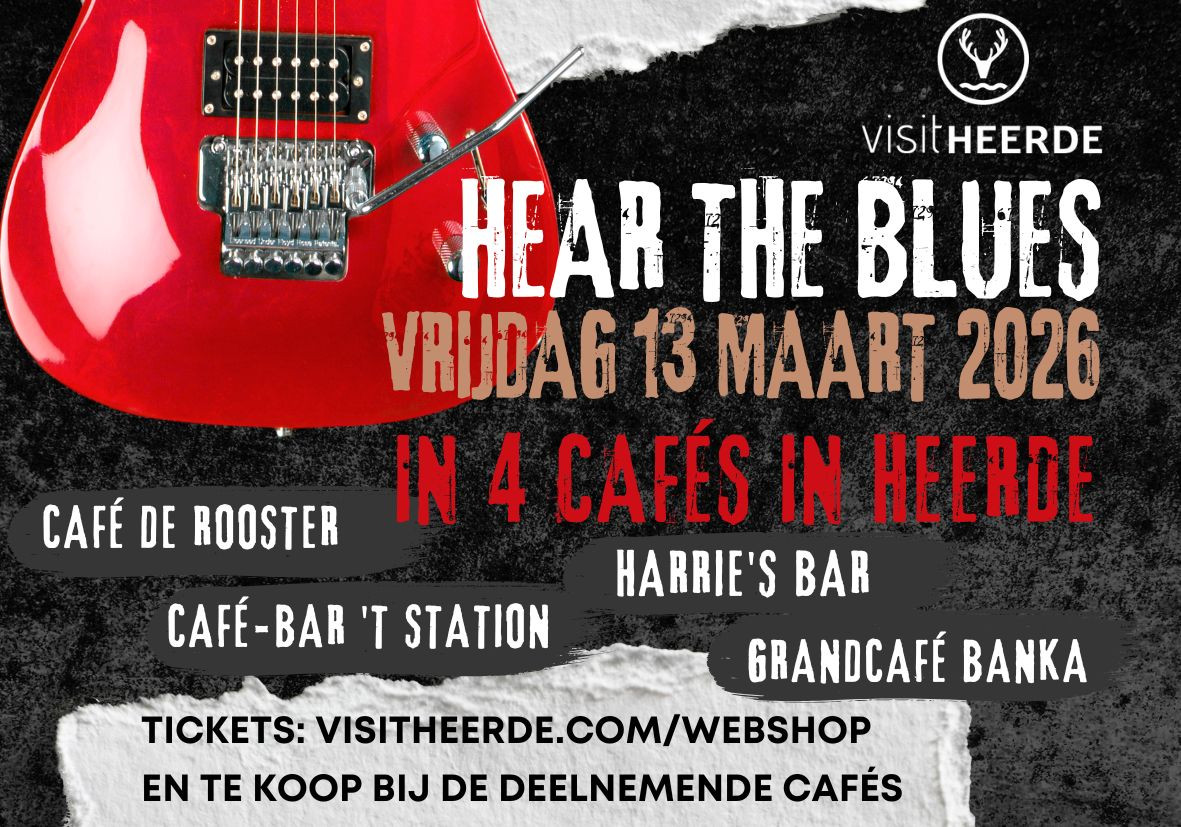


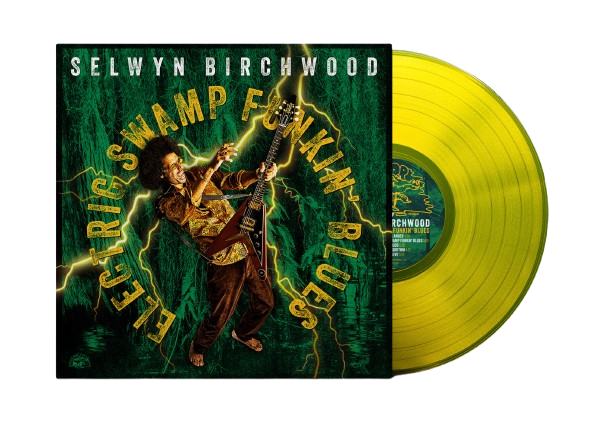
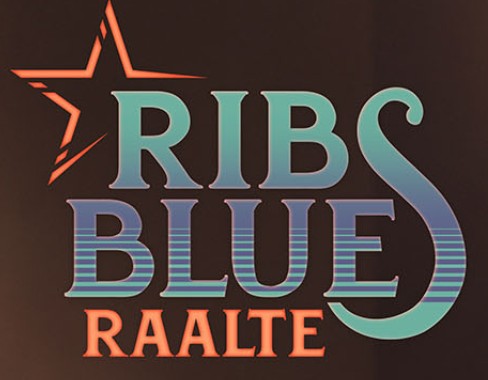

Geen opmerkingen:
Een reactie posten